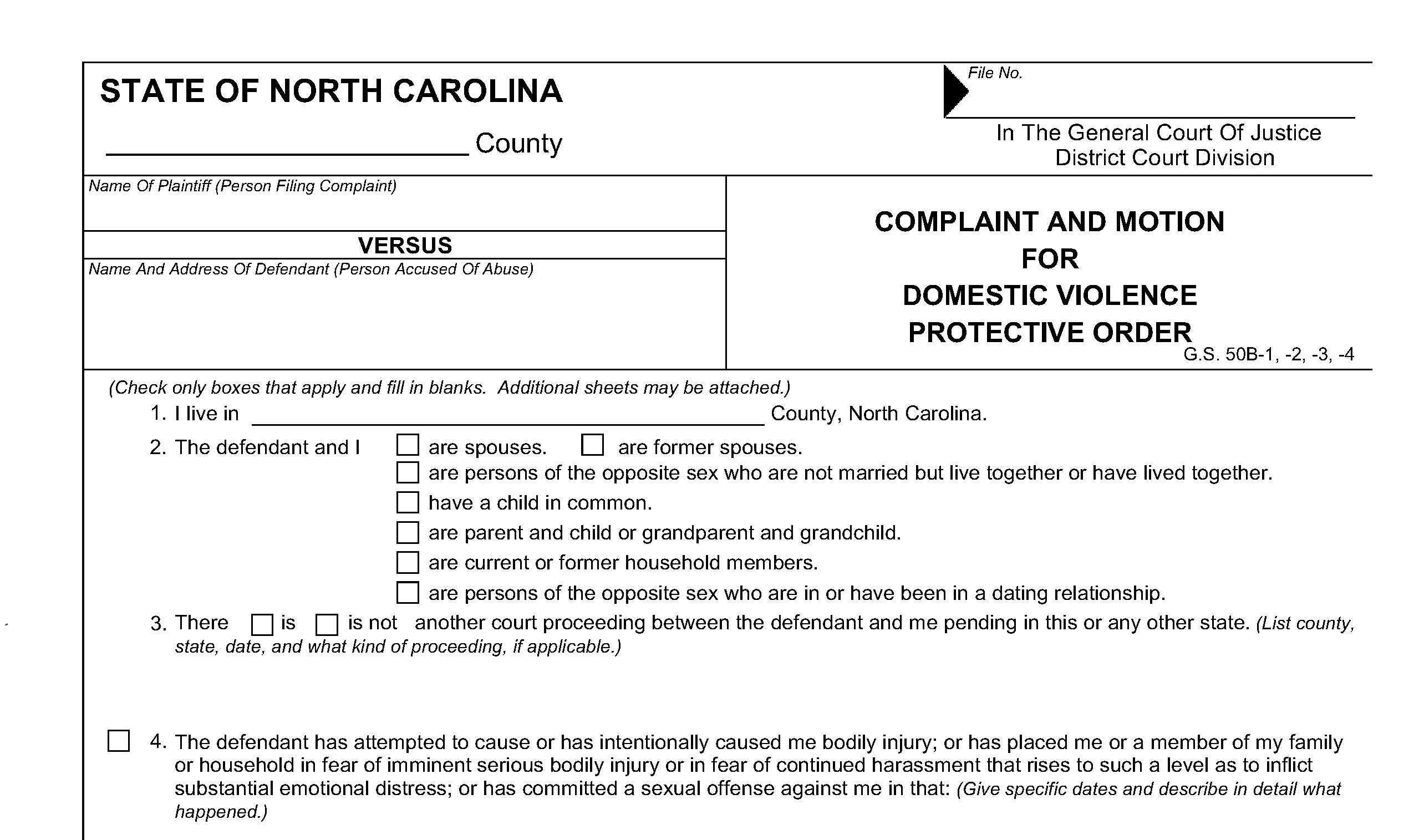In order to obtain a Domestic Violence Protective Order (commonly referred to as a "DVPO"), you must first file a Complaint and Motion for DVPO.
Any person may file an action for a DVPO and proceed pro se, or without the assistance of an attorney. A DVPO may be entered by a Judge either prior to or after giving notice to the defendant depending on the circumstances. A fillable Complaint and Motion can be found here.
Boxes 1 through 3 on the fillable form are self-explanatory. However, Boxes 4 through 11, if checked, require you to fill-in any additional details about the allegations that you believe should form the basis of a DVPO. In order for a court to admit evidence pertaining to acts of domestic violence, you must provide sufficient details in your Complaint to give the defendant notice of the "nature and basis of the claim." This means that you must provide some details regarding acts of domestic violence that you intend to testify about or present evidence of at trial. The details in the Complaint should, at a minimum, provide the defendant with a general understanding of the allegations you are making against him or her.
For example, let's say you check Box 4, which alleges that the defendant has attempted to cause or has intentionally caused bodily injury. At a minimum, you will need to specifically describe how the defendant has attempted to cause or caused bodily injury. If you allege that the defendant followed you on the highway, cut you off, and slammed on the breaks, it is likely that the judge will allow you to testify about and present evidence of not only this incident but also similar incidents involving the defendant's aggressive driving. However, if the defendant threw you on the floor at your house and you fail to include any mention of that in your Complaint, it is unlikely that you will be allowed to testify or present evidence of that incident at trial. In short, you should include in your Complaint at least some details about all allegations that you plan to testify about or present evidence of at trial.
Although the fillable form has limited space for you to fill in the allegations supporting your Complaint, you are allowed to attach additional pages to the Complaint if you need more space than is provided on the form. If you find yourself in this situation, you should ensure that the additional pages reference the paragraphs/Boxes of the form complaint to which the information on that page is related. Additional pages attached to the Complaint should be file-stamped by the Clerk of Court and served on the defendant with the rest of the Complaint. Additionally, the form Complaint should be signed by you before a notary public. Most Clerks will allow you to sign the Complaint at the Clerk's office and will notarize it for you. Lastly, North Carolina law requires that a Servicemembers Civil Relief Act Affidavit be filed with and attached to all Complaints. You can find a copy of the Servicemembers Affidavit here.




 />i
/>i

